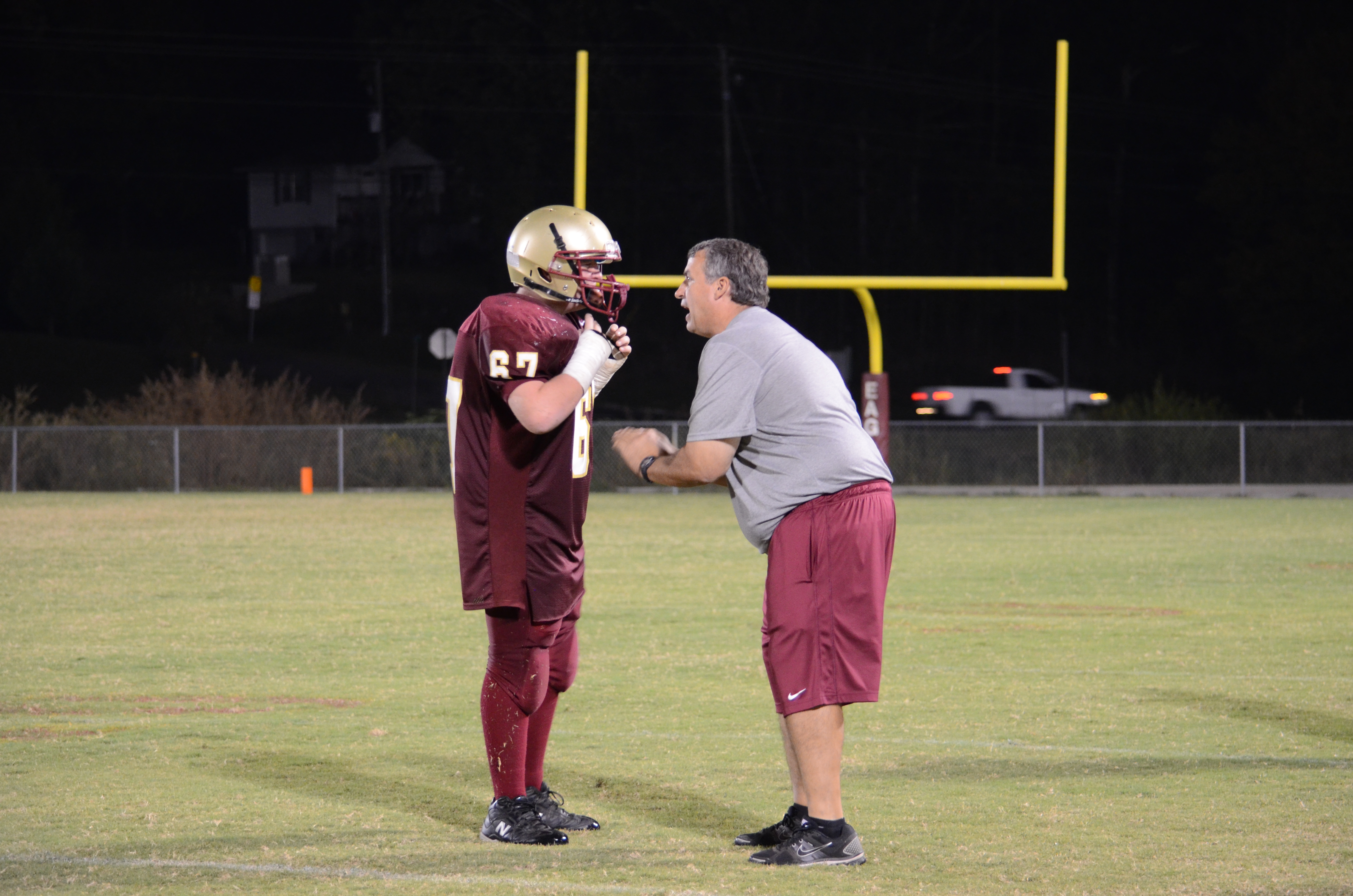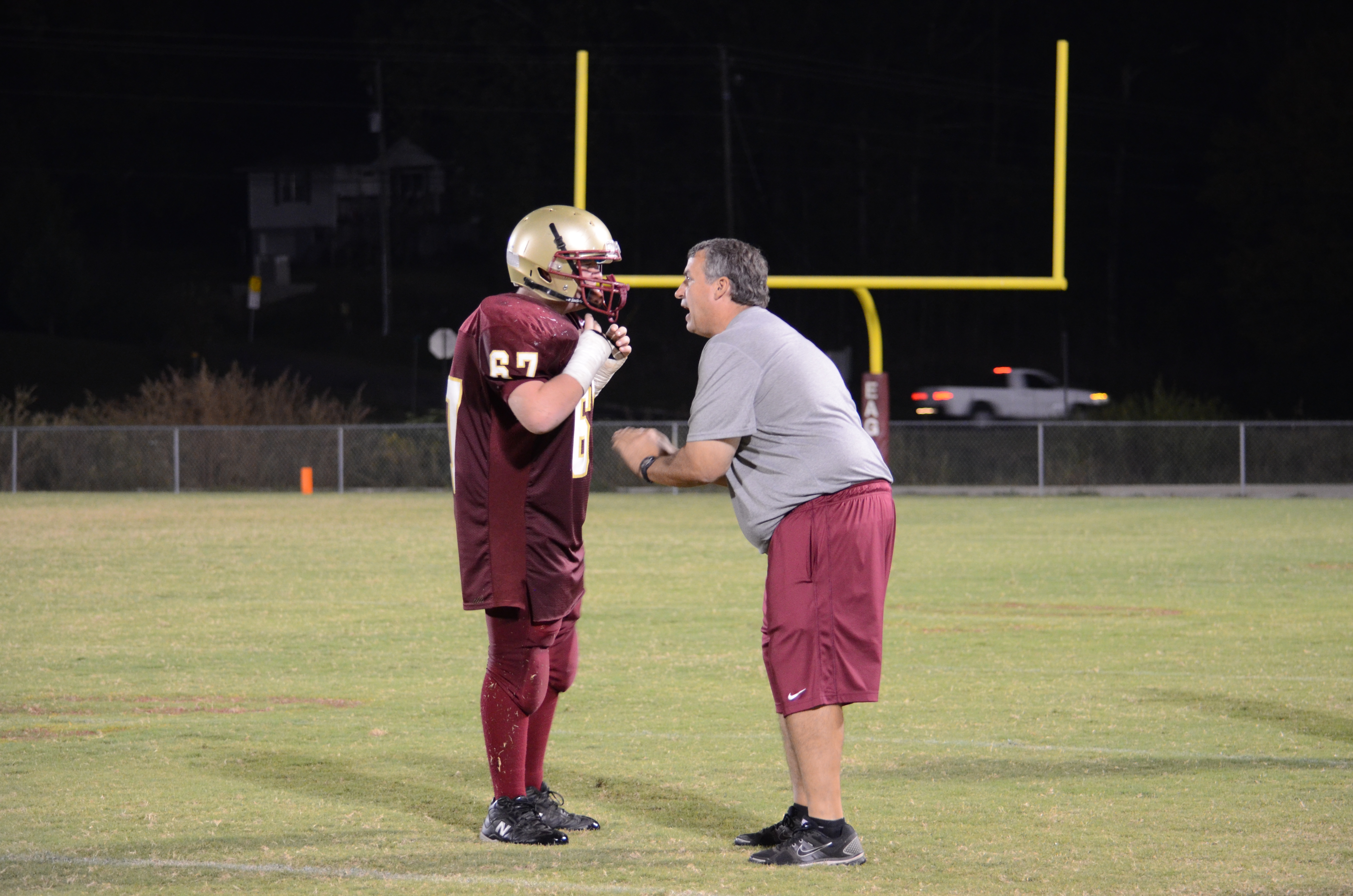
Coach Greg Patterson and his son.
I traded some tweets with Coach Greg Patterson about him coaching his own son one day a few weeks ago. It intrigued me. My oldest son is 6 years old, just playing his first organized sport right now: t ball!! It’s one of the highlights of my week, watching him play. It takes everything within just to sit there and watch and enjoy! The coach in me wants to give him more advice. There is that internal struggle between coach and dad!!
I asked Coach Patterson to share some lessons with all of us coaches about his experience of coaching his own boy! Thank you very much for taking the time to do this Coach, to share with “the brotherhood!” I know this will help others.
Coach Patterson spent this past season as the Head Football Coach, and is currently the Athletic Director at Sumiton Christian High School in Birmingham, Alabama. You can follow him on Twitter @gregpatterson51.
1) Honest communication with your son about your expectations for him on and off the field is a must.
It is imperative that we as coaches take the time to sit down with our children and explain in detail how you foresee the coach/parent relationship working on a daily basis. Hoping that they understand what we expect or desire without telling them is absurd. Trust me I made this mistake the first time around. I stupidly used my son as an example, good and bad, way too often. It did not take long before he had his fill of being singled out and it erupted in an ugly display of emotion.
It is so much simpler to tell your child what you expect of them and have an open discussion about it. When I took the time to do this with my second son I discovered that he had goals and dreams that were much more lofty that my expectations. Once I discovered this we were able to work together and formulate some goals and processes that would help him accomplish his goals. Although his college football dream did not work out our experience working together was much more productive and rewarding than that I had with my oldest son.
2) Give a trusted assistant (position coach) domain over handling your son’s punishment, if needed, unless it involves something that is always handled by the Head Coach.
This helps put a barrier between you and your child during a potentially volatile time. It’s much easier to leave the little stuff up to your assistants if possible. However, do not shy away from handling issues that you normally handle as a head coach. Simply stated, just be cautious in this area and don’t let emotions get carried away.
It’s difficult to handle punishment as coach and then turn right around and have to handle it at home as dad without the two encounters affecting one another. No matter how hard we try as coaches we carry our profession home with us. It seems to be even more true if you have a kid on the team, because then mom is somehow always able to sense when there is tension (lol).

3) If you trust your assistant coaches’ evaluation of all the players on your team then you must also trust their evaluation of your son, good or bad.
You place your assistants in a position to evaluate and teach your players and report back to you with their recommendations. Don’t question/doubt their suggestions involving your child any more than you would another player. If you happen to be your son’s position coach it can become a bit more difficult. Trust your instinct and if you still honestly question your evaluation of your child then ask an assistant their opinion.
Review practice/game film with them if necessary. I almost short changed my youngest son this past year out of a starting position because I was skeptical – over critical – about his ability. Thank God for a solid staff that spoke up and told me I was wrong and that he needed to be playing. Side note – another reason your staff has to be men of integrity with the freedom to hold you accountable when needed.
4) Make it very clear to your staff that you expect your son to be treated like the others as much as possible but it isn’t open season on him just because he is a coach’s kid. Your staff will follow your lead!
Believe it or not it is really easy to direct criticism at coach’s kids thinking that they will understand, all the while they take it very personal. I have realized that my sons’ have had a much different relationship with my staff than other players do.
I attribute this to the amount of time that they spent around the staff as young kids and then transitioning to becoming player. I have concluded that it is much easier for us as coaches to transition between different roles than it is for our kids. It has been my experience that the majority of coaches that struggle with this are younger coaches that do not have children of their own. It also became obvious to me that if I was willing to single out my own son to “vent on” in a team setting it opened the door for my assistants to follow suit.


